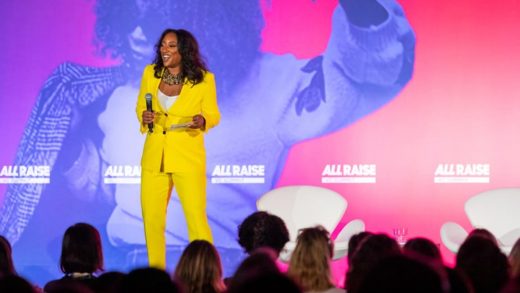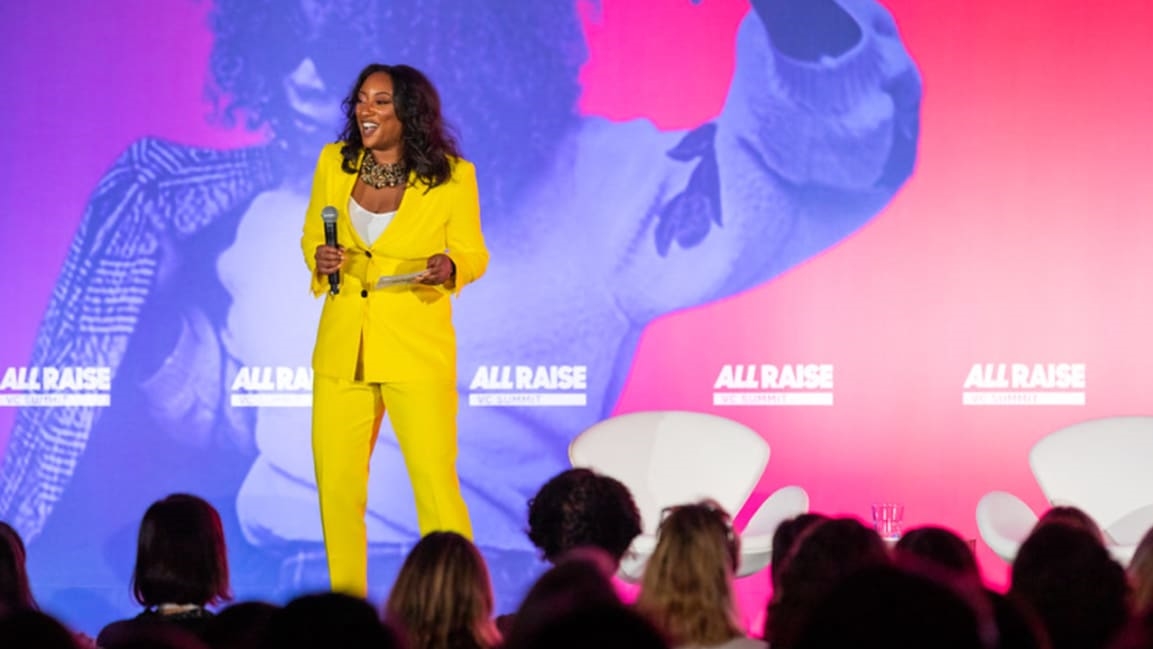“Make your mess beautiful”: How to navigate the chaotic world of startups
Doreen Lorenzo: When did you first realize you were interested in design?
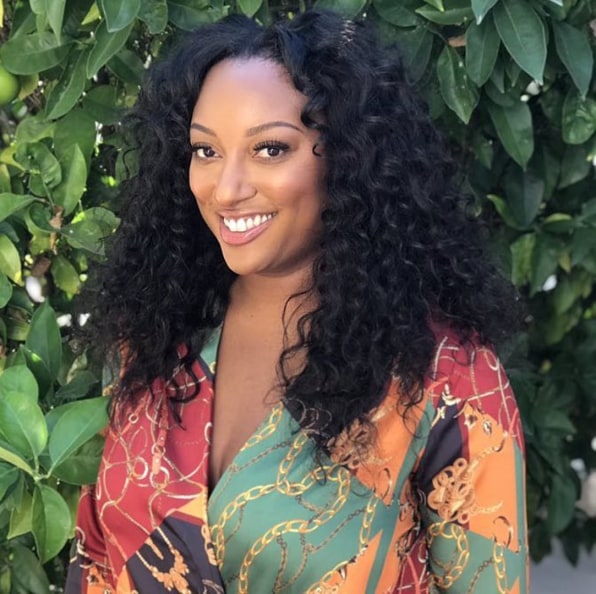
[Photo: Kevin Allen]
Domonique Fines: I remember when people used to get dropped off at the mall, I would get dropped off at RadioShack. I would ask them all these questions, taking things apart, putting them back together. How does this work? How does that work? I was kind of like a detective, really. I was actually obsessed with Nancy Drew. Little did I know that this was a piece of engineering. But my initial interest was in fashion design. I majored in fashion and minored in poli-sci because I wanted to be this fashion attorney. A professor in the fashion department was like, ‘What? Girl, are you going to design or be an attorney? We don’t even know how to grade you.’ I was the first student where they had that. I managed a law firm for four years after I graduated undergrad, and I was like, I can’t do this for the rest of my life. I just have too much creativity inside of me, and I’m glad I realized early on that being an attorney was not for me. The hardest part was explaining to my parents who knew I spent the majority of my life focused on the law journey and was so close to attending law school.
I moved back home and that led me to [the design agency] frog, which really stood out to me because of all the cool projects they were working on. It didn’t hit me until I got to frog that there were so many other pieces of design. I really got into experience design at frog. After planning hackathons and some SXSW events for frog, I decided I wanted to plan tech events at a larger scale.
How did that lead you to the VC space?
I just fell into it. I started looking for different event roles, and Bloom Talent reached out to me for an office manager role. I said, ‘No, I’m looking for event planning.’ They said they didn’t do events. I said, ‘Okay, well if you ever do, reach out to me.’ Six months later, they said they had this really cool position at this company where I’d be working on events full time. They were as shocked as I was that an events role had come across their desk. I was excited, period. I had no clue it was going to be Y Combinator. Even in my interview, I still didn’t know what YC was. Even on my first day at YC, I still didn’t really understand what was going on. I didn’t know anything about the VC space. I just knew I really loved events. I think that’s one of the things they loved about me. I wasn’t trying to go there for YC’s name. I literally just wanted to plan the best events.
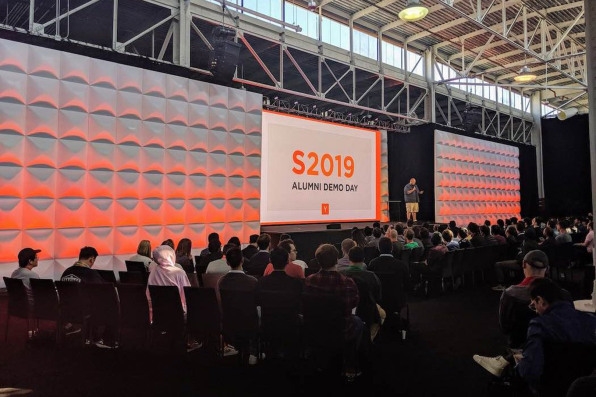
[Photo: Albert Law/Pork Belly Studios]
What was the first event you planned at YC?
The first event I planned was Demo Day. I started a month before Demo Day, and at the time we were only at 60 companies. It was a really big deal for me at the time because I knew I had all these founder’s futures in my hands. I didn’t know how to do this, but I had to make it look like I knew how and do it really well. They gave me a Google spreadsheet, showing where Demo Day had been in the past and how many people were in attendance. That’s kind of the YC way. They just give you things and let you have at it. Because if they give you too many instructions, then you would do it cookie cutter style. I can’t tell you how many times I was asked, ‘But how would YOU do it Dom?’ Apart from using the same venue (Computer History Museum) and a few other must-have details, I did the event differently adding in my own spice. I ended up nailing it. That was my first Demo Day. I did seven. I just got better and better. By the time I left YC, the batch size had grown to 220. It had exploded to something that I couldn’t even believe I was a part of while I was doing it. I was just going through the motions and going with my gut.
What was your favorite part about doing Demo Day?
I think my favorite part was when the founders got off stage, and seeing this sense of relief, but also their sense of knowing that this is when the game actually starts. That’s when you need to start fundraising. I also loved seeing them make deals around me. I’d be walking around the event at all times, listening to people and hearing their ideas being funded at an event that I curated. It’s like a large-scale version of Shark Tank, but it’s real life. I would always think, whatever I’m going through or whatever is happening with me, I need to put that to the side or else the world will not be able to see these companies. If I don’t get this event right and the companies presenting can’t get it right, who knows what the future will look like.
After staying at Y Combinator for four years, you made the move to All Raise. What was the catalyst for that?
I absolutely love Y Combinator, and it was one of the best places that I’ve ever worked. But I came to that point where I wanted a change in my career. I knew from all the founders in the growth of the batches I’d seen that I really wanted to focus on helping women. I wanted my entire brain to be focused on figuring out how to get women more funding, specifically Black female founders.
When I got to All Raise it was like meeting a family that you didn’t know you had. It’s like you have cousins across the country, and you finally get to meet them. We all want the same thing, we’re all working on the same thing and we get to work on it 24 hours a day. The first thing I did at All Raise was help put together the All Raise Summit. Not only did I help plan that summit, but I also emceed it. It was my first time being on stage in front of everyone, and I was nervous. Of course, I have stage fright. I’ve always been in the background of things, and that’s really how I liked it. It was safe. All Raise pushed me to a place where I needed to be, but thought I wasn’t ready to go there. All Raise was like, ‘No, you’re ready.’ I was high panicking to Pam Kostka (CEO of All Raise) 5 minutes before going on stage and I said, “Do I really need to do this Pam? I feel like you can do this.” Pam grabbed my hands, shook them in reassurance and said, “Dom you are ready and nobody else can do this but you. It’s your time.” Next thing I knew I was on stage in a yellow suit talking about how I got there.
All Raise is volunteer-based, so I managed the volunteers, recruited new volunteers, and helped build out the different chapters in L.A. and Boston. They both launched as soon as I started and it was crazy because everything happened so fast. That’s what happens when you work at a startup. This was my first time working at a startup. All Raise is a nonprofit, but it’s also a startup. I didn’t even have time to second guess myself. Throughout my time there I launched internal, volunteer-based communication tools, hosted community building events, helped plan the VC Summit, and basically did anything else that needed my hands. We were a small team of six at the time so all hands were on deck. We were building a plane while flying it. I did that for a year and I learned so much. Truly, the only reason I left is because I felt like I needed a break. I had been through so much throughout so many years and it was time for a work break for me. I’m happy that I got a chance to do that. I didn’t even know that was possible. I’ve never not worked. I’ve been working since I was 14 (sometimes two to three jobs at a time), so that was also scary. But All Raise encouraged it, was super supportive, and I still am part of the All Raise family. There’s a YC and All Raise partnership event that I, as well as its two other founders, Megan Holston and Julia Collins, created called When Founder Met Funder, that’s specifically for Black female founders.
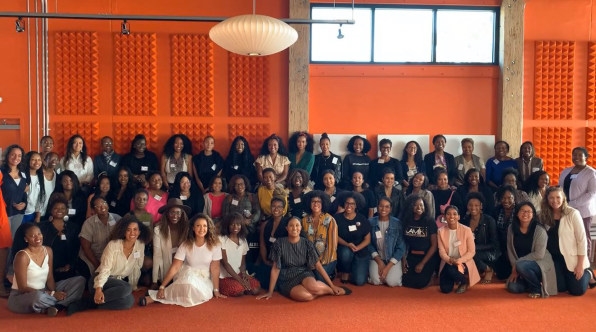
[Photo: Christine Cueto]
Tell us a little bit about that event, When Founder Met Funder.
It is an event (more like an experience) where we match Black female founders up with different funders. We prematch founders with top funders based on their focus so that founders can get that intimate session with funders and ask the questions that they really want to ask. In any other format, there’s no way they would get in front of these investors. We give them a safe space to talk about their companies from pretty much a pre-seed level. It’s a space to give people the comfort level of getting useful feedback.
We even have guest speakers, like Pinky Cole from Slutty Vegan. We went to Clark Atlanta University together and are sorority sisters, so I had her come and talk to everyone about her dream and how she got started. A lot of people don’t realize that they have a startup. Of course there’s a difference between a small business and a startup. A lot of people don’t know that difference either. But also it’s cool for the founders to hear where other people who look like us started coupled with where they are now. It gives a sense of hope.
How do you make people feel comfortable? What is the essence of a successful event?
I talk to everyone. I literally roam the room and speak to every single person there. I don’t care if you’re security, if you’re janitors. I talk to all the founders. I make sure that they’re doing okay, and in the right headspace. When I was at YC doing Demo Days, I would tell all founders but specifically the Black founders, ‘If you need anyone to talk to or you’re feeling jittery or antsy before you go on stage, come talk to me, I’ll calm you down. Everything’s gonna be fine. You know what you’re talking about.’ There’s a sense of comfort in remembering that we’re all human. We all have different job titles, but in my mind, there’s no one above anyone.
How do you think VC and startup investing should evolve?
People need to go into it with the frame of mind that everyone doesn’t have the same background. For a long time, everyone’s been looking for those people that come out of MIT or those people that are engineers. But the people who are creating ideas now, they don’t have those backgrounds. They don’t have those types of training or even the basic knowledge of how to move forward with a startup. That’s why YC created Startup School, a program that teaches you how to run a startup from start to finish. I first heard about the tech space when I got to college, but I think it needs to start earlier than that, like junior high or high school. I would even bring it down to late elementary. There just needs to be programs that train students to know what they’re working on or what they should be aiming for. They need to know about it ahead of time to start prepping for it instead of having to be in a speed race, trying to catch up to everyone else who has known about this for years and years.
Times are changing though. If you’re an investor, the goal is you want this company to become a unicorn, so why wouldn’t you make more investments in as many people as you can rather than the small group of people? Investors like Arlan Hamilton at Backstage and Monique Woodard of Cake Ventures are paving the way for a lot of other people and Black women specifically, to go into this space. We need all kinds of people with all kinds of ideas to help shape and change the world. When you invest in people versus ideas, magical things happen.
You’ve had a really interesting career so far, what do you think is next for you?
Actually, I was given the opportunity to invest this past year and I found that I really enjoy it. I have seven companies in my portfolio so far, and I’m most likely going to move into that full time in some fashion. I’m currently at a place that I didn’t even know existed. It’s like being on a road trip and you find a good hole in the wall spot/diner. Like what? This place was there? But this is good. This is really, really good.
What advice would you give to female and underrepresented founders now?
People need to understand that being a VC is a job, being a doctor, that’s a job, being a lawyer, that’s a job. It doesn’t matter what job you have, you’re still a person. We need to interact as humans, and also bet on ourselves. Even I count myself out of things, not believing that I could do it or because I want to make sure that it’s perfect. I say just do it. Just put it out there. We can do a V1 through V85 if you want. But just start and we’ll fix it later. There are a lot of people who think that when people start companies, they have everything together. I’ll tell you right now, startups are a mess. They’re a mess, and it’s all about how you clean that mess up, how you fix it, how you make your mess beautiful. Make a beautiful mess.
(14)

